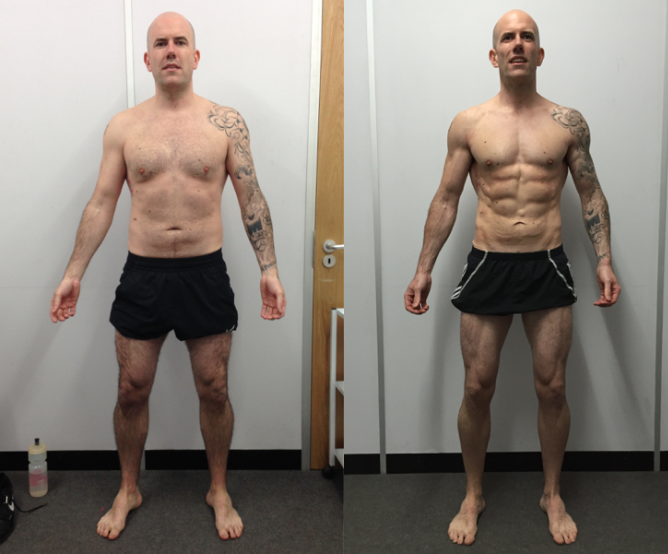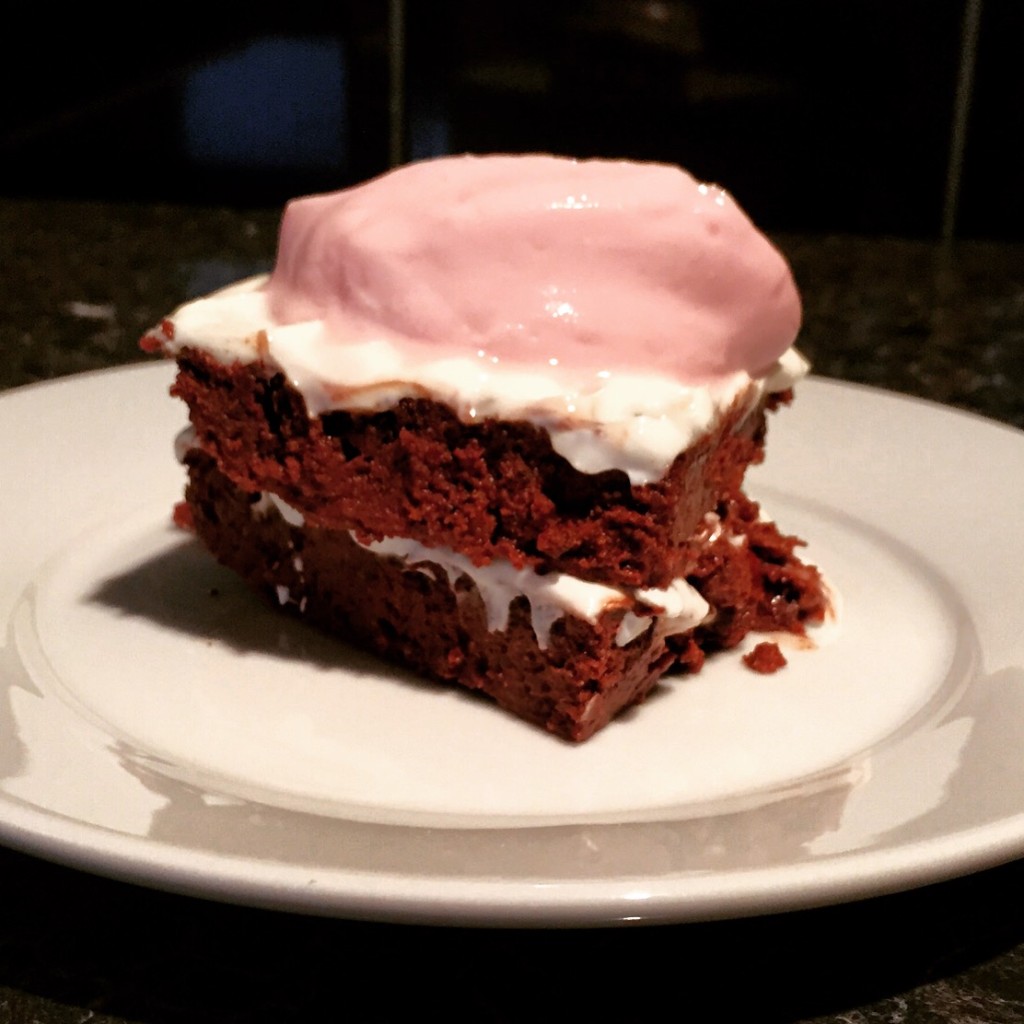The Truth on Coffee and Caffeine
Coffee is the most popular drink in the world; 400 billion cups get drunk every year. The consumption stats for us Brits varies but we apparantly spent £730 million on coffee in 2012, suggesting it plays a huge role in our daily lives! Caffeine, which is of course one of coffee’s main constituents, is regarded to be the most researched dietary supplement and is often a source of controversy.
We get asked many questions on the topic; caffeinated vs decaff? Does it spike my insulin and stop me burning fat? How much is too much? In a very literal answer to that last question, check out this calculator here; How much of your favourite energy drink, soda, or caffeinated food would it take to kill you? (please don’t put this to the test!).
Time to take a look through the science and set the record straight. No pseudo-science claims or tabloid-esque scare mongering… just the evidence!
Warning, this article is fairly science heavy! If you’d like to skip past the research heavy (but interesting!) content then click to go straight to the summary.
Diabetes/Insulin Sensitivity
Coffee intake appears to have a preventative effect on type II diabetes with one study finding those who drank 6+ cups of coffee per day had a 35% lower risk than those who drank less than 2 cups per day. 1
Tea seems to have no preventative effect on type II diabetes. 2, 4
Decaffeinated coffee still yields SOME benefit but not to the same extent as fully caffeinated coffee. This suggests that the caffeine content is at least part responsible here! 4
It seems that there are a few supposed mechanisms. There is a chemical in coffee called chlorogenic acid that may slow glucose production. With this compound also seeming to reduce the absorption of glucose through the gut. 5, 6
Albeit not a large one, coffee is also a source of magnesium. There are a few studies showing higher magnesium intake is associated with a reduction in the risk of type II diabetes and an increase in insulin sensitivity. 3
The above factors potentially mean less glucose in the bloodstream. Up to a point, this means a less stressed out pancreas therefore potentially staving off type II diabetes.
Weight & Fat Loss
Whilst there are plenty of arguments to the nuances of how weight and fat loss occurs, at its core it happens because there is a greater calorie output than input. Given the present evidence, this is fairly non disputable.
Caffeine consumption via coffee has been shown to increase this energy expenditure by approximately 100 calories per day when 6 cups of coffee was consumed each day (6 cups equals approx. 600mg caffeine). 7
Whilst 100 calories does not sound like much, this could be enough to tip the balance towards being in an energy deficit, thus equalling weight loss.
There is also a body of evidence that suggests caffeine helps to increase fat metabolism, suggesting that weight loss may occur directly off the back of caffeine’s effect on reducing body fat. 8
Interestingly, the effects of caffeine on weight loss seems heightened in non-obese individuals. This may be because those with obesity may be less sensitive to fat burning processes. 8 9
My clients often hear from dubious sources that consumption of caffeine stops fat loss due to it spiking insulin. When insulin is present in the blood stream it halts the process of burning fat. However this release of insulin is a normal biological response and does not have a significant effect on hampering fat loss in the greater context of a whole day. 10
Cancer Risk and Prevention
With regular coffee consumption studies have shown there is a potentially lower risk of developing colon and liver cancer. 11, 12
The potential benefits may be due to increased “movement” in the gut meaning there’s less time for cancer causing compounds to do their damage and by chemicals called diterpenes limiting the actions of these compounds by boosting the activity of antioxidants in both the liver and the gut. 13, 14
In the liver, caffeine and chlorogenic acid also fight the formation and effects of carcinogens. This however has only been tested in animals so it’s quite possible that the benefits do not extend to humans. 15 17
It seems that there is little to no evidence that coffee causes the formation of any other cancers, with studies not showing any associations with coffee intake and pancreatic, breast and prostate cancer, amongst others. 16
Cardiovascular Health
Very high intakes of coffee (5+ cups/day) have been associated with higher risks of developing heart disease or having a heart attack. 19
A more moderate intake of coffee (3-4 cups/day) was found to not increase risk. 20
High intakes of coffee may also not be a good idea for those who already have heart disease, with one study finding that those who drank 10+ cups per day had a significantly increased risk in having a heart attack. 21 Bare in mind that this is a fairly unlikely intake of coffee (I hope)!
The increased risk may be due to coffee intake increasing homocysteine levels in the body. Homocysteine levels are associated with increases in undesirable cardiovascular events such as stroke and coronary heart disease. 17, 22
Unfortunately, the compounds mentioned earlier that may be cancer fighting and beneficial to blood sugar control; caffeine, diterpenes and chlorogenic acid are the culprits that raise homocysteine levels! The diterpenes are present in French press coffee/unfiltered/boiled coffee, but are removed in filtered coffee. 17
In addition to increased homocysteine levels, coffee also increases blood pressure which in some individuals may lead to increased likelihood of having an adverse cardiovascular event.
One study found that consuming caffeinated coffee over a 12 week period only raised systolic blood pressure (the pressure in the arteries when the heart contracts) by only 2mm Hg. 17, 23
Whilst this seems small, one study found that a reduction of 2mm Hg of systolic blood pressure would result in 10% reduction in mortality from a stroke and 7% from coronary heart disease 23 .
Over the long term however, those with moderate coffee intakes were not more likely to develop clinical hypertension than those who did not. 24
Sport and Exercise Performance
The body of evidence around caffeine being an effective ergogenic aid is HUGE! Provided you don’t have any health issues that caffeine would adversely affect (anxiety, cardiovascular issues, kidney disorders. If you are unsure speak to your doctor) or exercise close to bedtime, then you would be mad not to supplement it.
Caffeine has been shown to:
- Increase anaerobic capacity 25
- Increase power output and strength 25, 26
- Increase aerobic exercise performance 30
- Decrease Rate of Perceived Exertion or RPE for short. Basically you can exercise or train at a lower perceived effort, perhaps letting you train harder. 29
- Improved reaction time 28
- Decreases in feelings of fatigue 27
To start experimenting with caffeine, do not use it more than twice a week as you’ll very quickly build up a tolerance and it will reduce the benefits. 18
Try first to have 200mg 30-60 minutes pre exercise, gradually building up to 600mg depending on your tolerance. If you feel over stimulated or jittery then reduce the dose by 100-200mg. If you don’t feel appropriately stimulated then try an extra 100-200mg. In terms of practically dosing this amount bare in mind the following:
- Caffeine tablets or capsules are commonly in denominations of 100 or 200mg and are probably the easiest method of dosing.
- A shot of espresso (~30ml) contains approximately 60mg of caffeine
- A regular black coffee is between 75-200mg, some brands may list the caffeine content, some might not so bare in mind that this might not be the best method of taking in caffeine for performance purposes.
- A can of sugar free Red Bull contains 80mg.
- A can of Coca Cola contains 34mg.
As a final note on this point, unless you know what you’re doing and have access to a set of very accurate scales, DO NOT use caffeine powder as getting the correct amount is very difficult making an overdose incredibly likely. I’ve heard of some horror stories involving defibrillators on stand by and lengthy stays in hospital!
Diabetes/Insulin Resistance
- Coffee may have a preventative effect of type II diabetes.
- Decaff coffee still has some benefit but not to the extent of fully caffeinated
- Potential mechanisms due to rate of glucose production slowing down as well as reduction in absorbtion of glucose through the gut.
Fat Loss
- Approx. 6 cups per day of coffee (~600mg caffeine) can increase energy expenditure by ~100kcal. Could be enough to take you into a calorie deficit.
- Increases metabolism of fat or use of fatty acids as fuel
- Has a more pronounced effect in non obese individuals, may mean you already have to be relatively lean to reap the rewards.
- Despite what some may say re caffeine/coffee spiking insulin, it does not stop you from burning fat and losing weight. Being in a calorie deficit is the most important thing to worry about.
Cancer
- Coffee could be a potential liver and colon cancer protectant.
- It increases transit time in the gut meaning carcinogens potentially have less time to act on the cells.
- In the liver it also fights the actions of the carcinogens themselves. Unfortunately this has only been demonstrated in animals.
- There’s little to no evidence that it increases risk of other cancers.
Cardiovascular Health
- High intakes (5-10 cups/day) has been associated with increased risk of heart attack or developing heart disease.
- Moderate consumption, around 3-4 cups per day has not been associated with risk or clinical hypertension.
- The increased risk with high levels may be due to increases in homocysteine levels.
- Unfortunately the chemicals increasing homocysteine are also responsible for cancer fighting processes.
- Coffee could increase blood pressure significantly in some individuals which may increase likelihood of an adverse cardiovascular event.
- Whilst the increases in blood pressure can be small, small decreases may result in significant reduction in risks of stroke or heart disease.
- Long term evidence suggests that moderate consumption doesn’t result in clinical hypertension.
Sport Performance
- Can increase power, strength and anaerobic performance.
- Can increase aerobic performance, possibly through a reduction in the rate of perceived exertion and decreases in feelings of fatigue.
- Can improve reaction times.
- Start with 200mg 30-60min pre exercise (be sure to check with doctor first if you’re unsure of how it affects an existing medical condition or any medicines you’re on)
- If necessary build up to 600mg but do it GRADUALLY!
- Back off by 100-200mg if you feel over stimulated or jittery.
- Caffeine tablets likely your safest and most easily dosed option.
- Don’t use caffeine powder unless you know what you’re doing.
- Only use caffeine twice a week to prevent tolerance.
You’re now safe in the knowledge that providing that you keep to a moderate consumption 3-4 cups per day you aren’t hampering your ability to burn fat, nor are you rotting away you insides with cancer causing compounds like some would have you believe… in fact quite the opposite!
About The Author
 James Blanchard (JB) is a personal trainer and nutrition consultant, working with clients both online and on an in person basis from the Better Body Group in Sevenoaks, UK.
James Blanchard (JB) is a personal trainer and nutrition consultant, working with clients both online and on an in person basis from the Better Body Group in Sevenoaks, UK.
He specialises in getting hard working, busy people lean, strong and confident whilst still enabling them to be social and enjoying life’s pleasures. Ya know, like beer, pizza and stuff.
Taking a scientific and evidence based approach, he designs his clients’ training and nutrition programs in the most effective, time efficient and easy to stick to way possible.
He has a weird obsession with picking heavy stuff up and putting it down again. He channels this through competing in powerlifting, where he currently holding a regional record in the squat. He’s also tried his hand at various other sports, including rugby, bobskeleton and athletics.
To get your hands on some of JB’s best work for free, you can join over a 1000 others and get his Get Shredded Toolkit, containing everything you need to get lean: “5 Rules to Get Shredded eBook”, a whole body training program, a completely personalised diet and comprehensive how-to guide here.
References
(1) van Dam, R.M., and Hu, F.B. 2005. Coffee consumption and risk of type 2 diabetes: a systematic review. JAMA., 294:97–104.
(2) van Dam, R.M., and Feskens, E.J. 2002. Coffee consuption and risk of type 2 diabetes mellitus. Lancet 360 1477-1478.
(3) Kao, W.H., Folsom, A.R., Nieto, F.J. et al 1999. Serum and dietary magnesium and the risk for type 2 diabetes mellitus: The Atherosclerosis Risk in Communities Study, Arch. Intern. Med 1592151-2159.
(4) Salazar-Martinez, E., Willett, W.C., Ascherio, A. et al 2004. Coffee consumption and risk for type 2 diabetes metllitus. Ann. Intern. Med 140:1-8.
(5) Arion, W.J., Canfield, W.K., Ramos, F.C. et al 1997. Chlorogenic acid and hydroxynitrobenzaldehyde: New inhibitors of hepatic glucose 6-phosphatase. Arch. Biochem Piophys339:315-322.
(6) Lewington et al. 2002 Age-specific relevance of usual blood pressure to vascular mortality: a meta-analysis of individual data for one million adults in 61 prospective studies. Lancet, 360: 1903-1913.
(7) Dulloo, A, Geissler, C. Horton, T., Miller, D. 1989. Normal caffeine consumption: influence on thermogenesis and daily energy expenditure in lean and postobese human volunteers. Am J Clin Nutr 49:44-50.
(8) Acheson, K.J., Zahorska-Markiewicz, B., Anantharaman, K., Jequier, E. 1980. Caffeine and coffee: their influence on metabolic rate and substrate utilization in normal weight and obese individuals. Am J Clin Nutr 33, 989-997.
(9) Greenberg, A.J., Boozer, C.N., Geliebter, A. 2006 Coffee, diabetes and weight control, Am J Clin Nutr 84 4, 682-693.
(10) Krieger, J. 2010. Insulin… an Undeserved Bad Reputation http://weightology.net/weightologyweekly/?page_id=319
(11) Tavani, A. and La Vecchia, C. 2004 Coffee, decaffeinated coffee, tea and cancer of the colon and rectum: A review of epidemiological studies, 1990-2003. Cancer Causes Control., 15:743-757.
(12) Inoue, M., Yoshimi, I., Sobue, T., and Tsugane, S. 2005. Influence of coffee drinking on subsequent risk of hepatocellular carcinoma: A prospective study in Japan, J. Natl. Cancer Inst., 97:293-300.
(13) Brown, S.R., Cann, P.A. and Read, N.W. 1990. Effect of coffee on distal colon function, Gut., 31:450-453.
(14) Huber, W.W., Scharf, G., Rossmanith, W. et al. 2002. The coffee components kahweol and cafestol induce gamma-glutamylcysteine synthetase, the rate limiting enzyme of chemoprotective glutathione synthesis, in several organs of the rat. Arch. Toxicol., 75:685–694.
(15) Hosaka, S., Kawa, S., Aoki, Y. et al. 2001. Hepatocarcinogenesis inhibition by caffeine in ACI rats treated with 2-acetylaminofluorene. Food Chem. Toxicol 39:557–561.
(16) Tavani, A. and La Vecchia, C. 2000. Coffee and cancer: a review of epidemiological studies, 1990–1999. Eur. J. Cancer Prev. 9:241–256.
(17) Higdon, J.V. and Frei, B. 2006 Coffee and Health: A Review of Recent Human Research, Critical Reviews in Food Science and Nutrition 46:101-123.
(18) http://examine.com/supplements/Caffeine/
(19)Kawachi, I., Colditz, G.A. and Stone, C.B. 1994. Does coffee drinking increase the risk of coronary heart disease? Results from a meta-analysis. Br. Heart J., 72:269-275
(20) Sesso, H.D., Gaziano, J.M., Buring, J.g.E and Hennekens, C.H. 1999. Coffee and tea intake and the risk of myocardial infarction. Am. J. Epidemiol 149, 162-167
(21) de Vreede-Swagemakers, J.J., Gorgels, A.P., Weijenberg, M.P. 1999. Risk indicators for out-of-hospital cardiac arrest in patients with coronary artery disease. J. Clin Epidemiol., 52:601-607
(22) Grubben, M.J., Boers, G.H., Blom, H.J. 2000. Unfiltered coffee increases plasma homocysteine concentrations in healthy volunteers: a randomised trial. Am. J. Clin Nutr. 71:480-484
(23) Lewington, S., Clarke, R., Qizilbash, N. 2002. Age-specific relevance of usual blood pressure to vascular mortality: a meta-analysis of individual data for one million adults in 61 prospective studies. Lancet., 360:1903-1913
(24) Klag, M.J., Wang, N.Y. Meoni, L.A. 2002. Coffee intake and risk of hypertension: The John Hopkins precursors study, Arch. Intern. Med 162:657-662
(25) Scneiker, K.T., Bishop, D., Dawson, B., Hackett, L.P. (2006) Effects of caffeine on prolonged intermittent-sprint ability in team-sport athletes. Med. Sci. Sports. Exerc. 38(3):578-585
(26) Tarnopolsky, M., Cupido, C. 2000. Caffeine potentiates low frequency skeletal muscle force in habitual and non habitual caffeine consumers. J. Appl. Physiol. 89 (5)1719-1724
(27) Hadjicharalambous, M. et al. 2006. Influence of caffeine on perception of effort, metabolism and exercise performance following a high fat meal. J. Sports. Sci. 24(8)875-887
(28) Duvnjak-Zaknich, D.M., Dawson, B.T., Wallman, K.E., Henry, G. 2011. Effect of caffeine on reactive agility time when fresh and fatigued. Med Sci Sports Exerc. 43:8 1523-1530
(29) Backhouse, S.H., Biddle, S.J., Bishop, N.C., Williams, C. 2011. Caffeine ingestion, affect and perceived exertion during prolonged cycling. Appetite 57 (1) 247-252
(30) Ganio M. S. et al. 2009. Effect of Caffeine on Sport-Specific Endurance Performance: A Systematic Review. Strength and Conditioning Research, 23 1, 315-324




